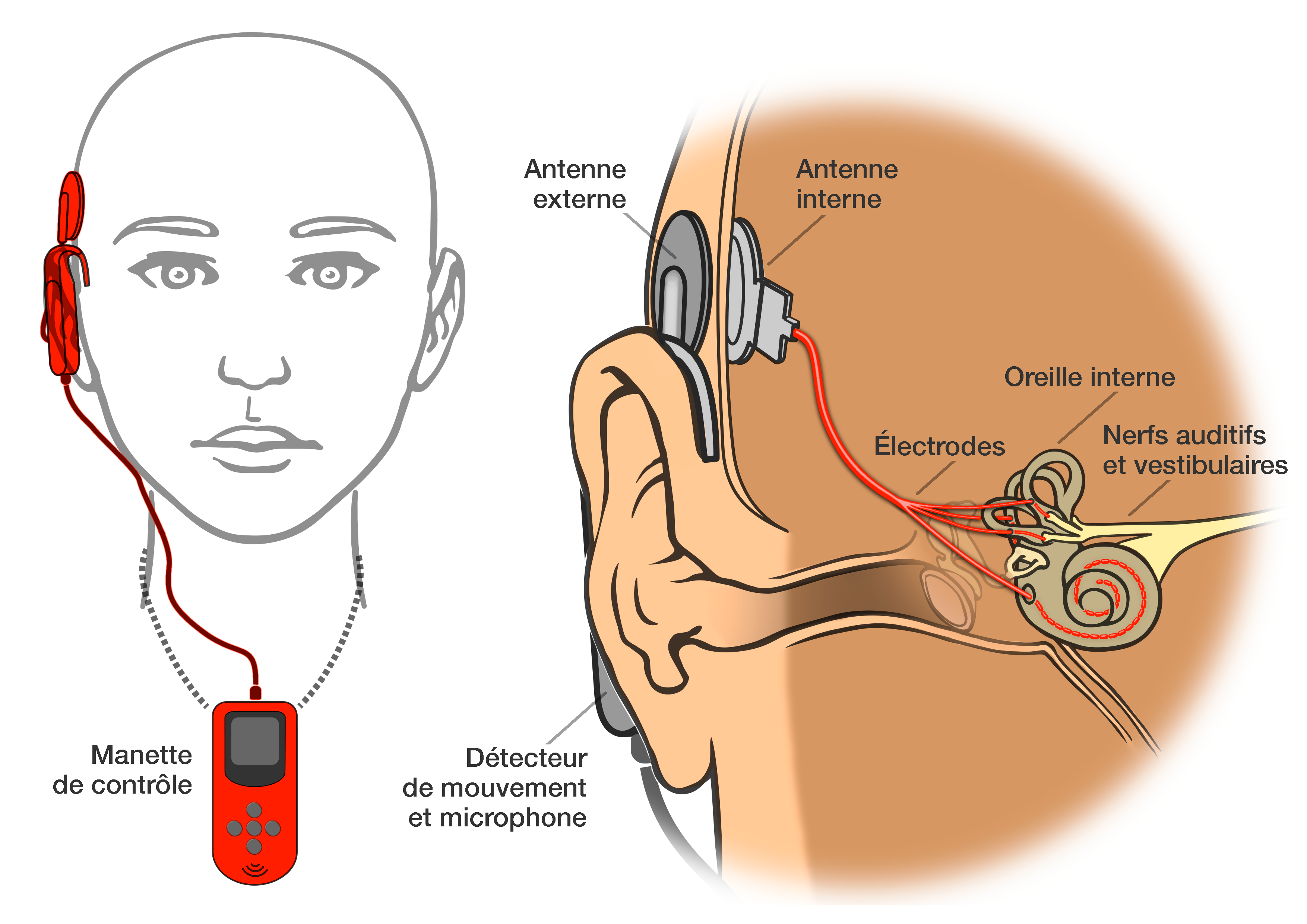[268] Sensory Neuroprostheses for the Restitution of Hearing and Balance

The work of our group focuses on the development of functional rehabilitation tools for patients with sensory deficits of the inner ear (balance and hearing). We are one of the world leaders in the domain, as we have significantly contributed to the development of the multichannel cochlear implant and in recent years the vestibular implant.
Vestibular implant
The highlight of our current research is the development of a vestibular implant, a neuroprosthesis designed to restore vestibular function in patients with a complete bilateral deficit. We have demonstrated the feasibility of the concept in humans, developed surgical techniques for implanting electrodes in contact with the vestibular apparatus, and developed specific electrical stimulation paradigms. Currently, our work focuses on three areas: (a) the evaluation of the actual functional rehabilitation that could be provided to patients by the implant; (b) the study of the critical parameters to optimize performance, and (c) the investigation of the specific contribution of the different sensory modalities involved in balance, since our unique experimental setup allows the de-coupling of the different sources of information (e.g., vestibular and somesthetic/visual information).
Other research areas
- Impact of a total vestibular deficit in the development of children
- Development of specific tools to facilitate speech development in pediatric cochlear implant recipients
- AudioRehab : game-based rehabilitation tool for speech perception training
- FunSpeech : game-based rehabilitation tool for speech production training
- Development and evolution of sound localization abilities in cochlear implant recipients
National and international collaborations
- Prof. Pascal Senn (Faculté de médecine, Université de Genève)
- Prof. Mireille Betrancourt (TECFA, Faculté de psychologie et des sciences de l'éducation de l'Université de Genève)
- Prof. Florent Glück, (Haute Ecole Spécialisée de la Suisse occidentale - HES-SO)[scac1]
- Prof. Silvestro Micera (Laboratoire d'ingénierie neurale translationnelle, Centre de neuroprothèses et institut de bio-ingénierie, Ecole Polytechnique Fédérale de Lausanne)
- Dr. Raymond van de Berg and Prof. Herman Kingma (Clinical Vestibular Laboratory, Maastricht University Medical Center, Maastricht, Pays-Bas)
- Prof. Richard Lewis (Jenks Vestibular Physiology Laboratory, Massachusetts Eye and Ear Infirmary, Boston, United States of America)
- Prof. Vincent van Rompey (ENT, head and neck surgery and communication disorders, University of Antwerp, Antwerp, Belgium)
- Prof. Anneliese Schrott-Fischer and Dr. Rudolf Glückert (Inner Ear Laboratory Innsbruck, Medical University of Innsbruck, Innsbruck, Austria).
